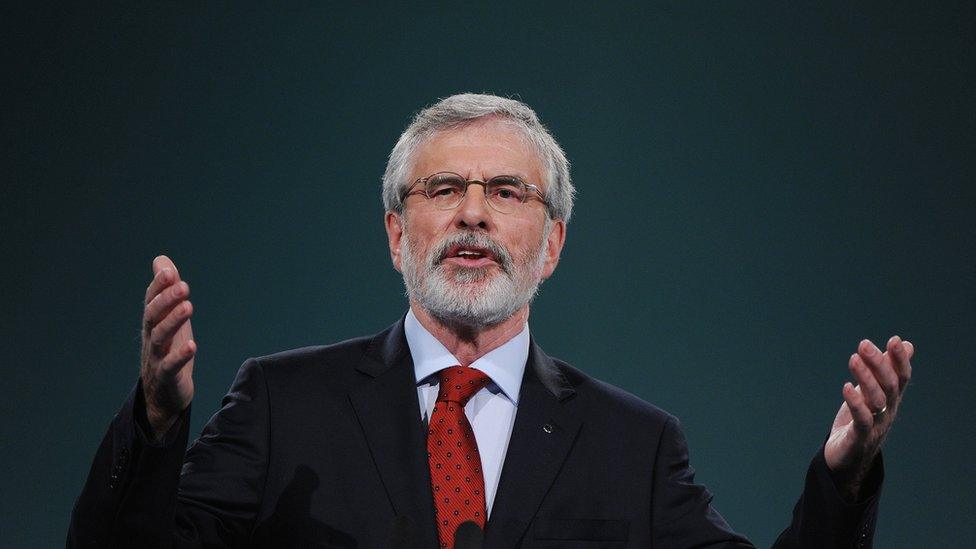Sinn Féin concerned by 'security force amnesty' plan
- Published
- comments
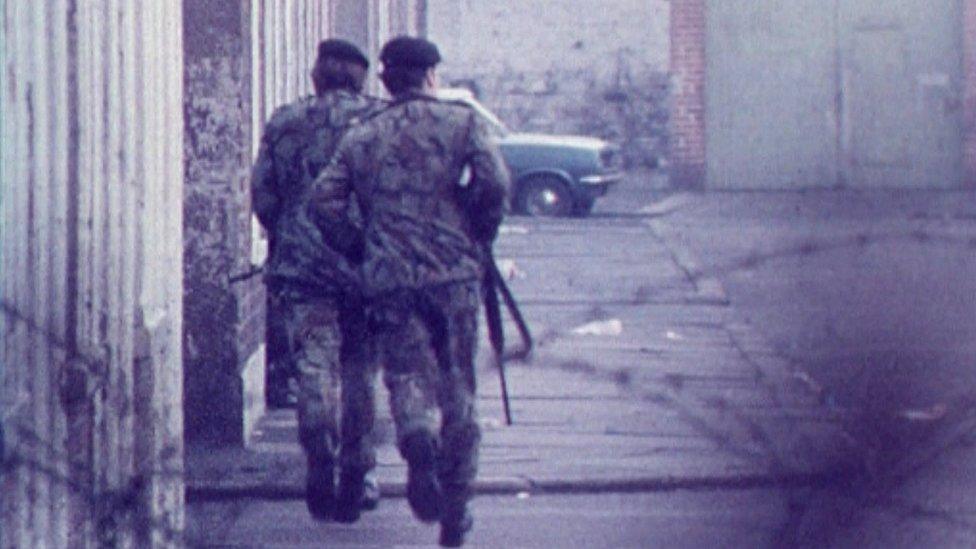
Conservative and unionist MPs want a "statute of limitations" to prevent security force members being prosecuted for offences early in the Troubles
Sinn Féin's Gerry Adams has expressed concern about a proposed "amnesty for British crown forces" allegedly involved in Troubles' offences.
Mr Adams said there had been a change to legacy arrangements envisaged under a previous political agreement.
He was speaking after meeting Prime Minister Theresa May.
Conservative and unionist MPs want a "statute of limitations" to prevent security force members being prosecuted for offences early in the Troubles.
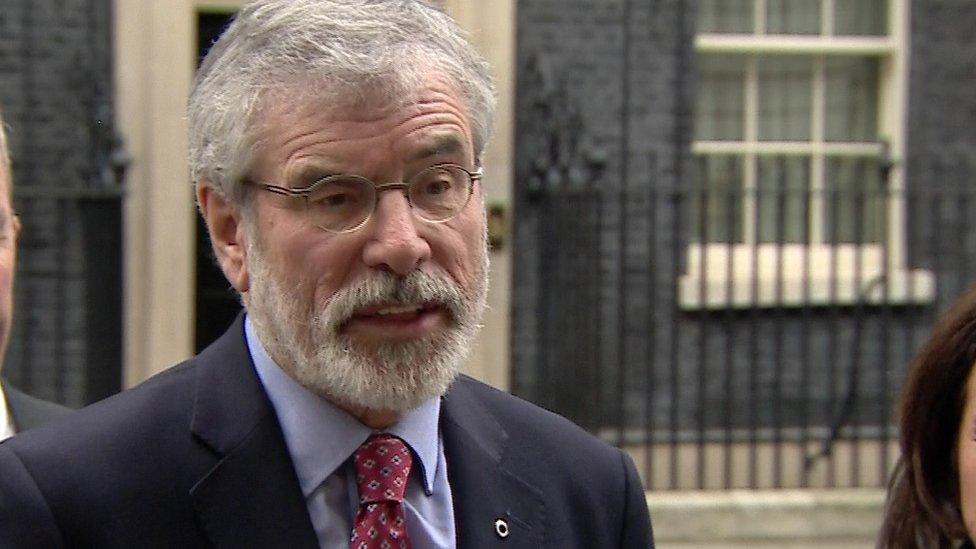
Gerry Adams held talks with Theresa May on Tuesday
Mr Adams, the outgoing Sinn Féin leader, said he understood a new section had been added to the 2014 Stormont House Agreement and that it was "about an amnesty for British crown forces" - the term republicans to describe the Army and police.
"That is an act of bad faith, we weren't told this, we understand the Irish government weren't told this," Mr Adams said.
"So how on earth can a British prime minister hope to persuade anybody that there's a possibility of a new dispensation emerging when she takes up this position and her secretary of state takes up this position also?"
Issues 'small in number'
A government source told the BBC that their preferred approach remained the proposals set out under the Stormont House Agreement, but that the government wanted, in their consultation, to ask the public what they thought about a statute of limitations.
The Irish government said it would "not look favourably" on any amnesty measure in Northern Ireland.
"There are no amnesties from prosecution provided for in the Good Friday Agreement or any subsequent agreements including the Stormont House Agreement," a spokesman for the Department of Foreign Affairs said.
Earlier, the DUP said Sinn Féin must stop glorifying the murders of innocent people.
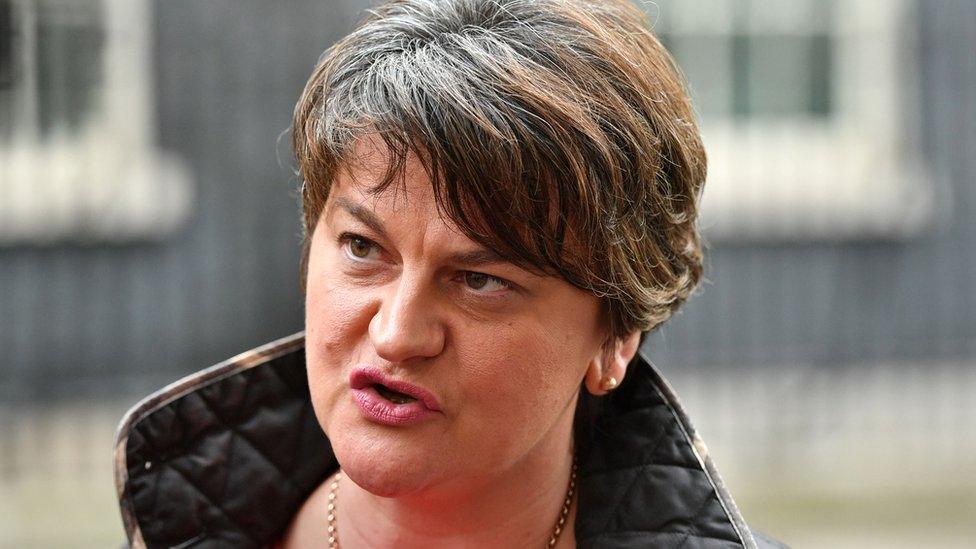
DUP leader Arlene Foster said remarks made about IRA terrorism at Sinn Fein's annual gathering were 'quite disgraceful'
Speaking after a separate meeting with Mrs May, DUP leader Arlene Foster said remarks made about IRA terrorism at Sinn Féin's annual gathering were "quite disgraceful".
She said the DUP would continue to work towards the restoration of devolution.
Mr Adams, however, rejected Mrs Foster's allegations, saying they were an excuse not to strike a deal.
The Sinn Féin president was accompanied to the Downing Street talks by the party's leader north of the border, Michelle O'Neill, and its vice president, Mary-Lou McDonald.
Northern Ireland has been without a devolved administration since January, when the governing parties - the DUP and Sinn Féin - split in a bitter row over a botched green energy scheme.
Eulogising murder?
At the Sinn Féin gathering (ard fheis) in Dublin at the weekend, tributes were paid to the late Martin McGuinness.
Sinn Féin was viewed as the political wing of the IRA during the Troubles. Party members regularly attend commemorations for IRA members.
The Provisional IRA killed almost 1,800 people during its campaign, about 650 of those were civilians.
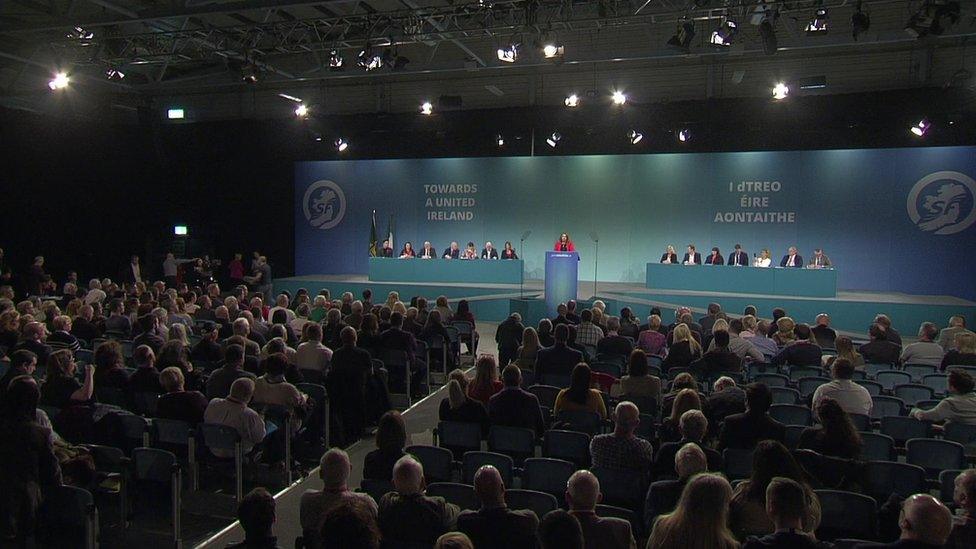
Tributes were paid to the late Martin McGuinness at the Sinn Féin party conference at the weekend
One of the loudest cheers of the conference came when delegates were told that the former Stormont deputy first minister, Mr McGuinness, had been a "proud member of the IRA".
Mrs Foster said she had told Mrs May the glorification of terrorism made the restoration of power sharing in Northern Ireland more difficult.
She said the DUP was talking about a deal to restore power sharing that both unionism and nationalism could live with, but she accused Sinn Féin of only being concerned with nationalism.
She also criticised calls from Sinn Féin for more direct involvement by both the London and Dublin governments over the political stalemate at Stormont - saying the internal governance of Northern Ireland was a matter for the UK government.
The Sinn Féin delegation had been expected to tell Theresa May that instead of direct rule, the British and Irish governments should deliver on equality issues like same-sex marriage and an Irish Language Act.
But DUP MP Nigel Dodds was scathing about Sinn Féin's complaints about equal rights.
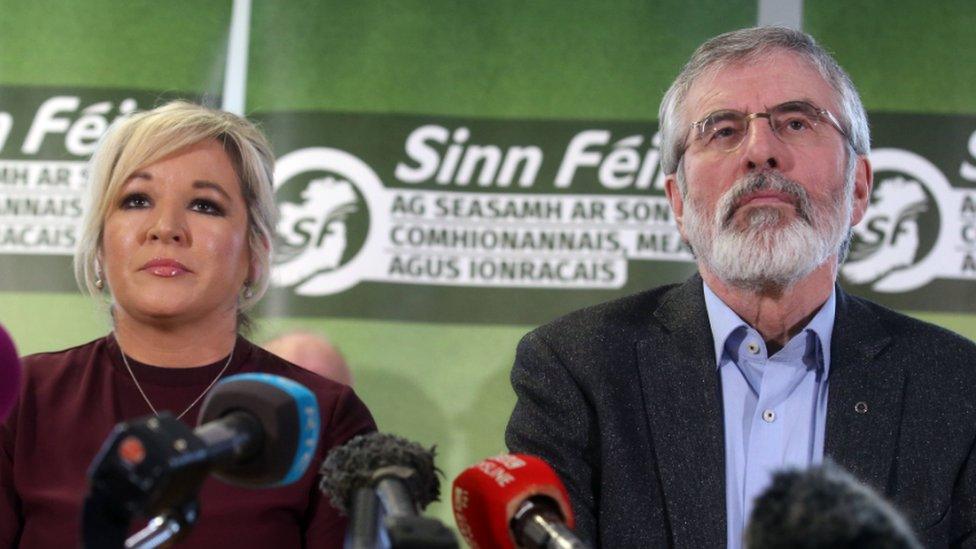
Michelle O'Neill and Gerry Adams are expected to press the government on same-sex marriage and an Irish language act
"When Sinn Féin lectures everybody about rights, remember that the greatest right of all is the right to life," said Mr Dodds, who met the prime minister with Mrs Foster.
"It is not just that Sinn Féin have supported IRA terrorism in the past, and the murder of innocent people, but even at the weekend they were continuing to eulogise and glorify the murder of innocent people.
"In a rights-based society, that has got to stop," he added.
Mrs May said it was clear the issues dividing the parties are relatively small in number, focusing mainly around culture, legacy, identity and the future stability of the devolved institutions.
"While not in any way underestimating the challenges involved, I believe that a way forward can be found and an agreement reached," she said.
Sinn Féin has called for a British-Irish Intergovernmental Conference to be convened to consider a way forward, but Mrs Foster described that body as a "talking shop which has not met since 2007".
She said Northern Ireland must not be used as a pawn in ongoing Brexit negotiations, accusing some in Dublin and Brussels of trying to recklessly use Northern Ireland for their own objectives.
Sinn Féin said the confidence and supply arrangement between the DUP and the Conservative Party had "compounded" the problems the parties faced.
- Published21 November 2017
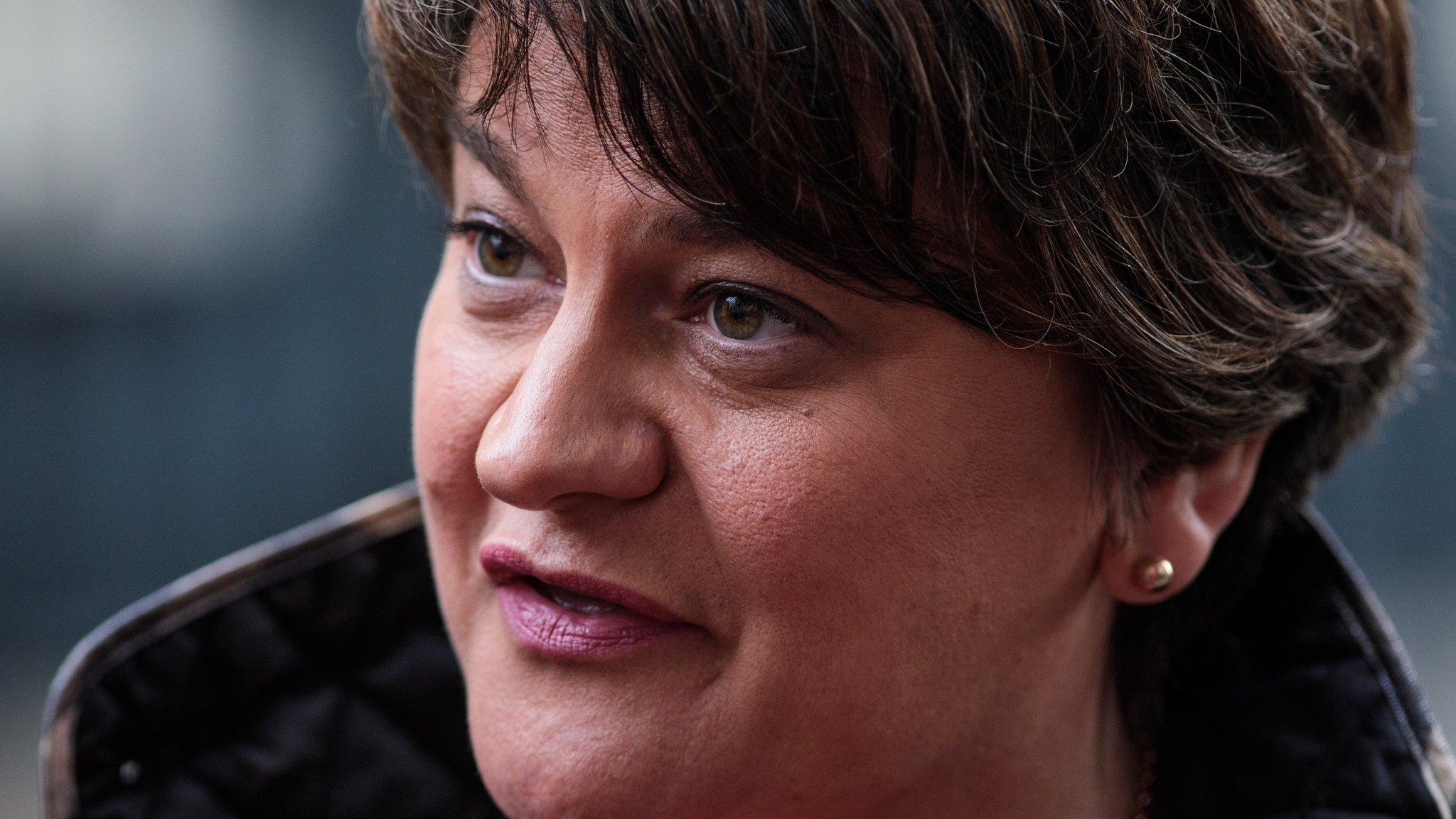
- Published20 November 2017
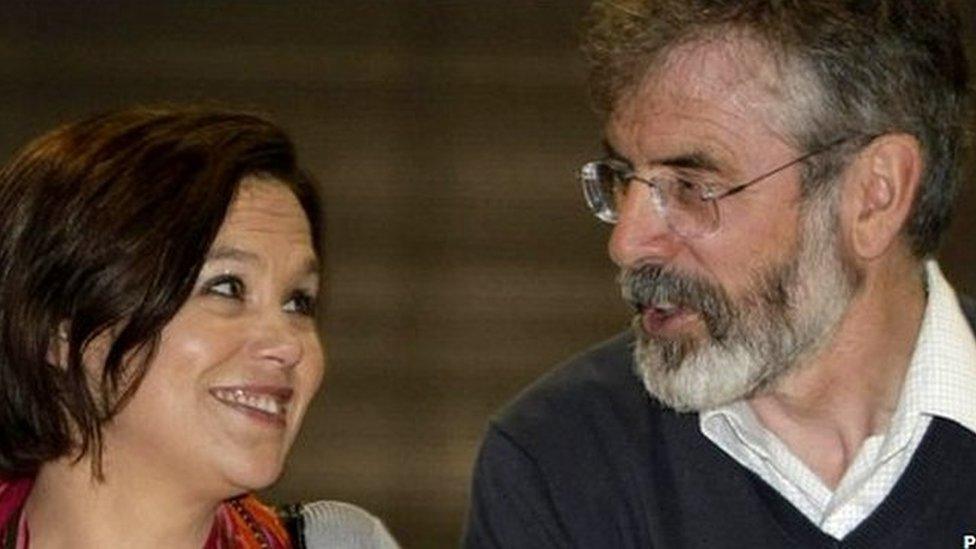
- Published18 November 2017
